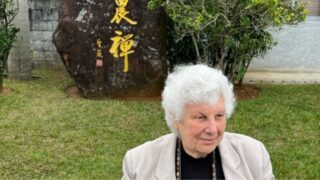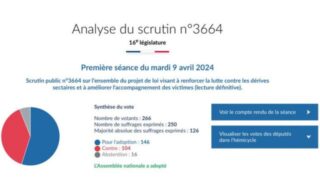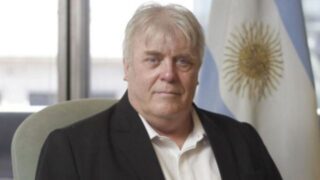Many of those who purchased high-priced “spiritual” artifacts from UC members are still happy today with their purchases.
by Masumi Fukuda
Article 2 of 4. Read article 1.


The FFWPU was ready to return money
The public uproar about “victims” may not fully understand the reality. In many cases, individuals willingly made donations to the FFWPU, but later, due to a loss of faith or pressure from family members to disaffiliate, they asked for refunds. Historically, the FFWPU has generally accommodated such refund requests. It is uncommon to hear about religious organizations readily returning donations, and the organization’s inherent generosity may be backfiring.
The uncle of Tetsuya Yamagami (Prime Minister Shinzo Abe’s assassin) sees things differently. He bluntly stated: “The religious group returns money if threatened.” Also, the anti-cult National Network of Lawyers Against Spiritual Sales (NNLASS) is fabricating new “victims” by provoking individuals with statements like, “Let’s negotiate for a refund. Let’s sue. If you do that, you will get your money back.” Thus, there are two types of plaintiffs: ex-believers who are instigated by NNLASS lawyers who say, “You can easily recover the money you donated,” and those who are victims of deprogramming—ex-believers who were kidnapped and confined by their families and then persuaded to sue by the deprogrammers.
On the other hand, it must be shocking for the FFWPU to hear that their “systematic solicitation of donations” is given as a reason for the request for a dissolution order. It is argued that this corresponds not only to Item 1 but also to Item 2 of Article 81, Paragraph 1, of the Religious Corporations Act: “acts significantly deviating from the purpose of a religious organization.”
The clear purposes of any religious group include: 1. spreading the teachings of the religion, 2. conducting ritual ceremonies, and 3. teaching and educating believers. Opponents often criticize the high donations to the FFWPU, claiming condescendingly that “God doesn’t need money.” However, for religious organizations to fulfill these purposes, donations are essential. Actually, God does indeed need money.
Moreover, for religious corporations that do not engage in for-profit activities, donations are the sole source of income. However, the Ministry of Education, Culture, Sports, Science and Technology (MEXT) regarded the systematical collecting and soliciting of donations as “acts significantly deviating from the purpose of a religious organization.” It is an absurd conclusion that does not attempt to understand the nature of religion from the outset.
By the way, the FFWPU claims that the donations are mainly used for “overseas missionary activities” and “teaching expenses,” which are two of the major purposes of religious corporations: spreading the doctrines of the religion, and teaching and educating believers. It claims that the purpose of collecting donations is not for financial gain.
In essence, soliciting donations for a religion should be acceptable as long as it does not involve coercion or extortion. In the case of the FFWPU—unlike the Myokaku-ji case, where a dissolution order was granted—there has been no criminal charge under the Penal Code for solicitation of donations. Furthermore, there has not been a single case recognized under the Civil Code as fraud or coercion (Civil Code, Article 96).


Happy donors’ reflections on the FFWPU
I spoke with four followers who made substantial donations to the Family Federation for World Peace and Unification (FFWPU, formerly the Unification Church or UC). The church’s donation practices became a main reason for the dissolution order request. Three of these FFWPU followers are women, and one is a man.
Michiko Tsuji, a 73-year-old lady residing in Tokyo, joined in August 1983. “In August of that year, a believer came to my home to sell a personal seal. There were no threats like ‘you will fall into hell if you don’t buy.’ At that time, I was expecting a child and was thinking about the name for the upcoming baby. The believer also did fortune-telling and name analysis for me, with a very deep perspective. So, I purchased a set of three couples of seals for 240,000 yen. It was not so expensive. Looking back now, I think it was a mysterious guidance. After that, we were invited to an exhibition and attended one after another as a couple, eventually purchasing a pagoda.”
Tsuji had been enjoying a prosperous life until then. Therefore, she often heard jokes from acquaintances like, “Why did you, who had no need for religion at all, get caught up in Unification Church?” However, Tsuji was looking for meaning in her life. “When I was 15, I wondered if there was any truth in this world. If I found out there was truth in this world, I even thought I could die, as Confucius said, ‘In the morning, hear the Way, and in the evening, die content.’” The UC provided an answer to her quest for the meaning of life.
After purchasing the pagoda, she began to have one spiritual experience after another. For example, during a tour to a historic temple in Korea organized for those who had purchased the pagodas, she climbed a stone staircase designated as a national treasure and felt a sensation as if she were ascending from hell to heaven. Her hands began to tremble with “spiritual movement.”


Her maternal grandmother’s face appeared diagonally above and said, “Welcome. I’ve been waiting here.” Tsuji realized that she was praying for things she had never thought of before, such as the reunification of North and South Korea and world peace.
Afterward, Tsuji learned that Reverend Sun Myung Moon had made sacrificial efforts throughout his life to save humanity. She embraced the teaching of Reverend Moon to live for the sake of others. Over the forty years since joining FFWPU with her husband, they have donated a total of 100 million yen.
“I have contributed tens of millions of yen at once, and I have even used my home as collateral. Once you understand the importance of Providence, you cannot help but make donations. However, it is by no means compulsory. When I heard that Reverend Moon was starting something new, my blood stirred. I naturally felt the desire to contribute and make God and True Parents happy.”
According to the UC, Providence, in simple terms, is God’s plan for the salvation of humanity, and it has manifested in history with certain regularities. In the contemporary context, it appears as a struggle against communism, which denies God. For believers who understand this, Providence serves as a guideline on how to act for the salvation of humanity, and it becomes a motivation for making donations. However, it could be problematic if making high donations leads to neglecting one’s family or to leaving underage children in distress.
“In the early days, some believers, in their zeal to achieve the grand objectives of creating world peace and an earthly paradise for humanity, neglected their homes and became emotionally distant. This is a point of reflection for the FFWPU,” Tsuji said.









